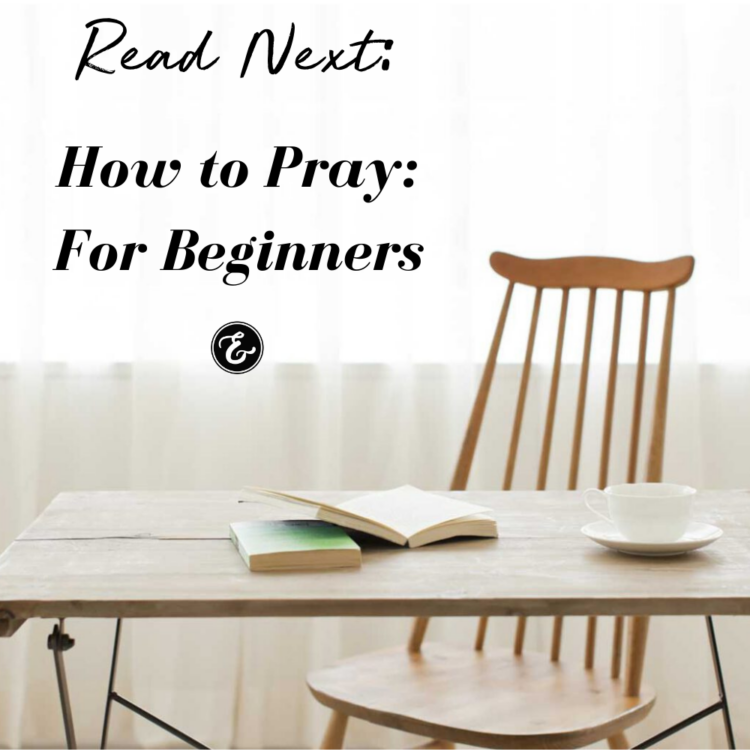When my pastor recently asked our small group what actions we could commit to taking this week to increase practicing faith in an authentic way, I paused.
What came to mind was a series of events from my twenties when life was simple, a bit more melancholic, and I had time for things like spiritual practices and disciplines.
During my mid-twenties as a new(ish) convert, I devoured every book I could get my hands on about spiritual formation, long before I even knew that was what I was reading. I sang psalms and wrote new ones as I strummed an out-of-tune black guitar with nail-bitten and calloused fingers. I read and read and read and met some of the greats like Yancey and Bonhoeffer and Tozer and Tada and Siena and Nouwen and let their words and experiences saturate my own.
A Period of Spiritual Growth and Reflection
At the time, I rented a cabin on a bayou in Western Michigan that had been in my family for decades. Its interior and exterior was a bit eccentric and colorful. There were those classic characteristics of young living quarters for a single: small kitchen, twin bed, rocking chair facing the window, a plant that was always thirsty. A persnickety cat.

It was an opportunity to look outside and into myself and to learn more about what the Christian faith, and in particular, following Jesus, was all about. Along with worship and reading both books on spiritual formation and scripture, I joined my first small group at a church I felt like I could finally connect (somewhat) with. I learned that I wasn’t alone in my quest and thirst for God, and that there were other people (even if I couldn’t yet trust them) who were on a journey, too. Other women who read passages from Peter and really, truly, deeply wanted to add all of those qualities to their hearts (and preferably before marriage).
I think back on this period of spiritual growth and exploration as one of profound beauty. I had some of my most intense moments with God, crying out in despair and anger, and the most peace, hearing that still small voice in those around me, in the lake breeze, in the resting swans on the water. I had visions like small stones that I found on the beach and put in my pocket.
Dallas Willard says this about spiritual formation:
“Spiritual formation in the tradition of Jesus Christ is the process of transformation of the inmost dimension of the human being, the heart, which is the same as the spirit or will. It is being formed (really, transformed) in such a way that its natural expression comes to be the deeds of Christ done in the power of Christ.”¹
So how, as we grow older and “life happens”—when the dishes need to be done and the babies need to be fed and your husband needs a listening ear and the yard needs to be raked—do we allow time and space for some of those practices that both history and our own small experiences show us to be helpful in, as the early disciples put it, ‘increasing our faith?’
Here are 5 spiritual practices for a closer walk with God:
1. Read.
Yes, I said it.
Reading is still cool, people. And helpful for spiritual formation. So, we can put our Audible down, turn off Apple Podcasts and tune into the archaic sound of pages turning. We can read scripture, of course, but also books from other believers about their faith walk can be helpful, too. In my own life, I’ve learned so much from modern giants of the faith. Here is an oldie but goodie from one of my favorite authors, Jennie Allen: Anything: The Prayer That Unlocked My God and My Soul.
In this book, Jennie talks about how someone else’s words, particularly Katie’s (the author of Kisses from Katie), inspired her to take bold action and turn to God with a new prayer that ultimately changed her life. Reading books from other pilgrims on the path (or pilgrimesses) paired with reading the Bible can be an incredible combination for spiritual formation.
2. Pray
I spend almost a whole chapter talking about prayer in my upcoming book, Downstairs Church: Finding Hope in the Grit of Addiction and Trauma Recovery. Prayer is an accessible tool for spiritual formation that can be done anywhere. My favorite time to pray: when I’m walking my dog. I love how John Throop describes this in an article in Christianity Today:
“Prayer can be offered in silence and in reflection on God’s Word. We can pray through the singing of psalms, hymns, and spiritual songs. As Augustine, bishop of Hippo, said in the fourth century, ‘He who sings prays twice.’ We can use The Book of Common Prayer or other sacred texts available for worship and private prayer. We might want to employ a pattern for prayer. A familiar approach is the ACTS method: Adoration, Confession, Thanksgiving, and Sanctification.”²
Or as my pastor recently put it: “Good prayer—and a right relationship with God—requires both words and silence.”
3. Get Vulnerable
Some circles might call this repentance or confession. I like to also refer to this pouring forth of ourselves, including hurts, wrongs, and muck as vulnerability. When we can be radically honest, we receive the gift of radical healing.
Repentance is a heart action that takes this all a bit deeper. It is confessing with our feet. Eugene Peterson, in his awesome book that I’m praying makes a comeback called A Long Obedience in the Same Direction: Discipleship in an Instant Society, says that “the usual biblical word describing the way that we say no to the world’s lies and the yes we say to God’s truth is repentance.” He goes on to state that repentance is not an emotion. It is not feeling sorry for your sins. It is a decision. It is deciding that you have been wrong in supposing that you could manage your own life…”
I love this idea of repentance as an action, moving beyond the mind or even heart. In the same way, vulnerability is something we do, not feel. When we can be real with each other about our hurts and hang-ups, transformation happens.
4. Connect in Community
All of these ideas for modern spiritual formation (that aren’t so modern), can be done in the quiet of solitude. Or, perhaps most importantly to note, they need to be done in community, too. We can read reflectively with a group in a small group or Bible study (my favorite is Bible Study Fellowship). We can pray with our friends or family or on Sunday mornings. We can even share vulnerably with others and confess our struggles with each other.
5. Rest
It’s easy to get going a million miles per hour and not stop. After all, there is no shortage of stuff to do in today’s world. But it is clear in scripture (and for all mental health practitioners and counselors) that rest is a necessary part of life. Especially in the western world where productivity is for many of us is a golden calf (shout out to the OT).
Similar to how people need to schedule rest days when training for a marathon so that their muscles can heal, we need time for our bodies, minds, and spirits to renew. A couple ways that this can practically happen includes one of my favorites: the weekend nap. If my kids are resting or watching a movie, I grab a book and my favorite plush purple blanket and doze. I take off workout days. I schedule in time where I am not looking at my phone or answering emails. I sit down without anything to distract me. As my IG friend and author Manda Carpenter puts it, I allow myself to get bored.
Spiritual formation is a process, a pilgrimage, a journey without a destination. The journey, itself, is the point. While this modern age brings new challenges, we can also dig into the past, learn from those who are walking ahead of us, and commit to taking action for a closer walk with the God. He wants us to finish the race and win the prize eternal and be able to say:
“I have fought the good fight, I have finished the race, I have kept the faith,” (2 Timothy 4:7).
—
Curious about how else faith can be incorporated into your everyday life? Check out this video on dealing with anxiety:












